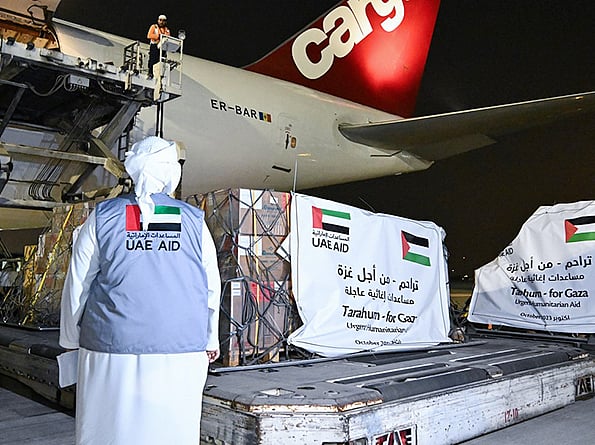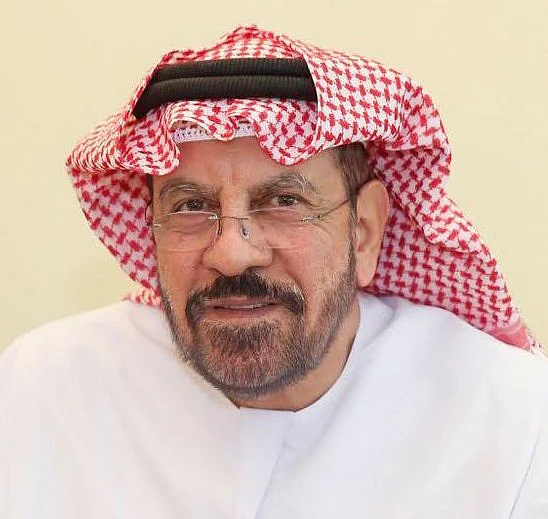UAE marks International Day of Peace with global mediation push
Diplomacy, aid and dialogue remain pillars of UAE’s foreign policy

Abu Dhabi: The UAE continues to leverage its international relations and active diplomatic presence to help resolve crises worldwide. Guided by the principles of its foreign policy — which emphasise joint action and dialogue as the means to address challenges — the UAE seeks practical solutions that strengthen peace and stability.
This comes as the UAE prepares to join the international community in marking the International Day of Peace on September 21, amid its growing role as a trusted mediator in regional and global affairs—bringing parties together, fostering cooperation, and advancing the shared aspirations of peoples for development and prosperity.
Palestine
Throughout 2025, the UAE has taken proactive steps to ease global crises, most notably the war in Gaza. At the Arab League Council of Ministers meeting on September 4, it stressed the importance of mobilising broad international support to halt Israel’s aggression, ensure unimpeded delivery of urgent humanitarian aid, and stop the deterioration of conditions in the West Bank and Jerusalem while confronting illegal Israeli practices and settler violence.
The UAE called for a responsible international effort to safeguard Palestinian rights and lay the groundwork for a just and lasting peace based on the two-state solution.
It also condemned the Israeli Knesset’s approval of the so-called “Israeli sovereignty” declaration over the occupied West Bank, describing it as a blatant violation of international law and UN Security Council resolutions.
Through Operation Gallant Knight 3, the UAE has continued large-scale humanitarian relief, delivering 90,000 tonnes of aid worth $1.8 billion by mid-September.
Sudan
The UAE has consistently supported peaceful solutions to the Sudanese conflict, prioritising unity and the protection of civilians.
On February 14, 2025, alongside Ethiopia, the African Union, and IGAD, it convened the High-Level Humanitarian Conference for the People of Sudan in Addis Ababa.
The UAE pledged an additional $200 million, raising its total contribution since April 2023 to $600.4 million — and $3.5 billion over the past decade.
It also joined the launch of the 2025 Sudan Humanitarian Needs and Response Plan and the Regional Refugee Response Plan, underscoring its role as a leading donor in North Africa.
On September 13, the UAE, Egypt, Saudi Arabia, and the United States issued a joint statement stressing Sudan’s sovereignty, unity, and the futility of a military solution, calling instead for a Sudanese-owned transparent transitional process.
Syria
The UAE reaffirmed its support for Syria’s sovereignty, territorial integrity, and the aspirations of its people.
It took part in the International Conference on Syria in Paris in February and welcomed US President Donald Trump’s decision in May to lift sanctions, calling it a step towards growth and prosperity.
The UAE has condemned repeated Israeli airstrikes on Syria, stressing its rejection of violations of Syrian sovereignty.
Armenia and Azerbaijan
Mediation by President Sheikh Mohamed bin Zayed Al Nahyan paved the way for the Washington Joint Declaration in August 2025, ending hostilities and establishing full diplomatic and trade ties between Armenia and Azerbaijan.
The UAE also hosted direct talks between leaders in July, further strengthening its role as a trusted broker of peace in the South Caucasus.
India and Pakistan
In May, the UAE urged restraint following military escalation, welcoming the May 10 ceasefire and praising both nations for prioritising peace.
Iran
In June, Sheikh Mohamed bin Zayed led de-escalation efforts after Israeli strikes on Iran, engaging in urgent calls with global leaders.
He expressed solidarity with President Masoud Pezeshkian and welcomed the Iran–Israel ceasefire agreement on June 24, hoping it would pave the way for stability.
Qatar
The UAE strongly condemned Iranian and Israeli attacks on Qatar in June, affirming full solidarity with Doha. Sheikh Mohamed visited Doha on September 10, followed by trips to Manama and Muscat, reinforcing Gulf unity in the face of Israeli escalation.
Saudi Arabia
In February, the UAE condemned Israeli Prime Minister Benjamin Netanyahu’s remarks on establishing a Palestinian state on Saudi territory, calling them a violation of international law.
It reaffirmed that Saudi Arabia’s sovereignty remains a “red line.”
Russia and Ukraine
The UAE has continued to facilitate mediation, enabling 17 prisoner exchanges involving 4,641 detainees since the conflict began — reflecting its role as a trusted humanitarian and diplomatic partner.
Sign up for the Daily Briefing
Get the latest news and updates straight to your inbox
Network Links
GN StoreDownload our app
© Al Nisr Publishing LLC 2026. All rights reserved.
